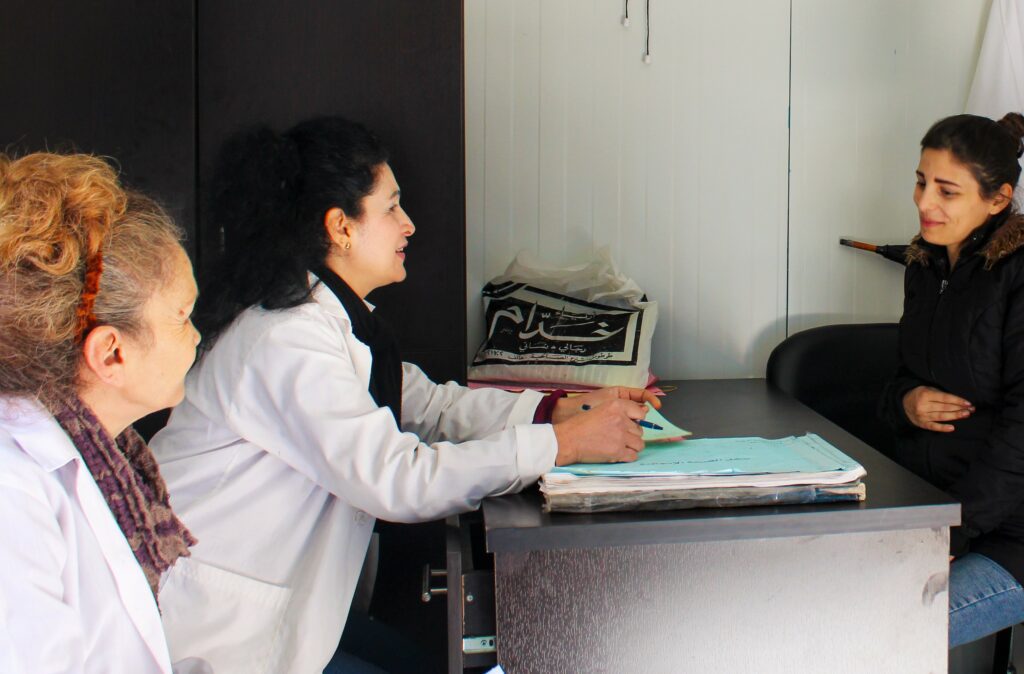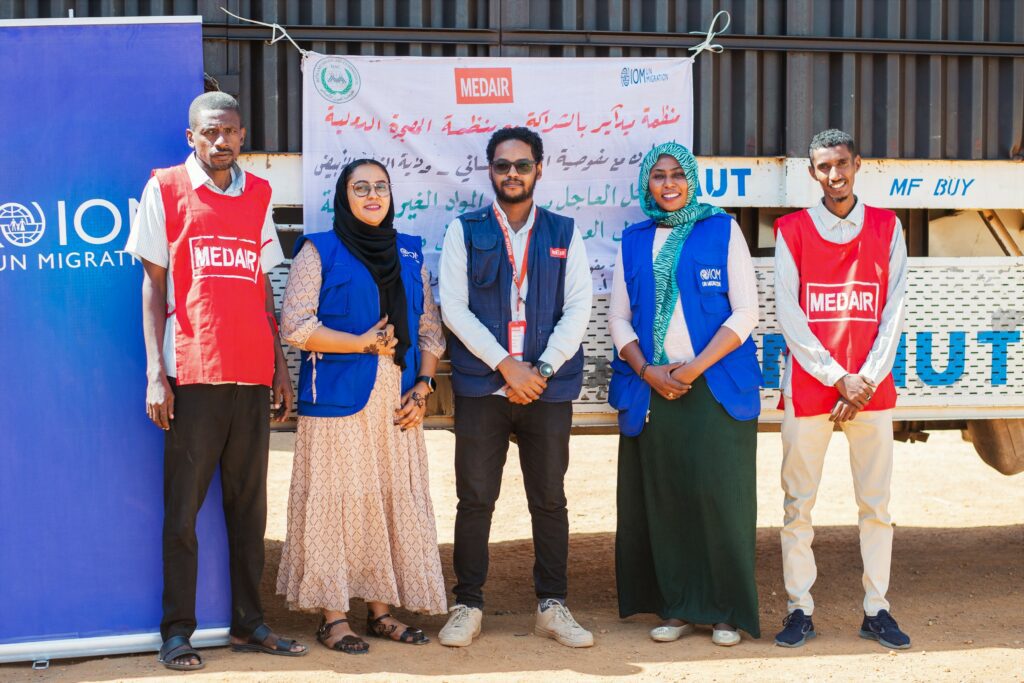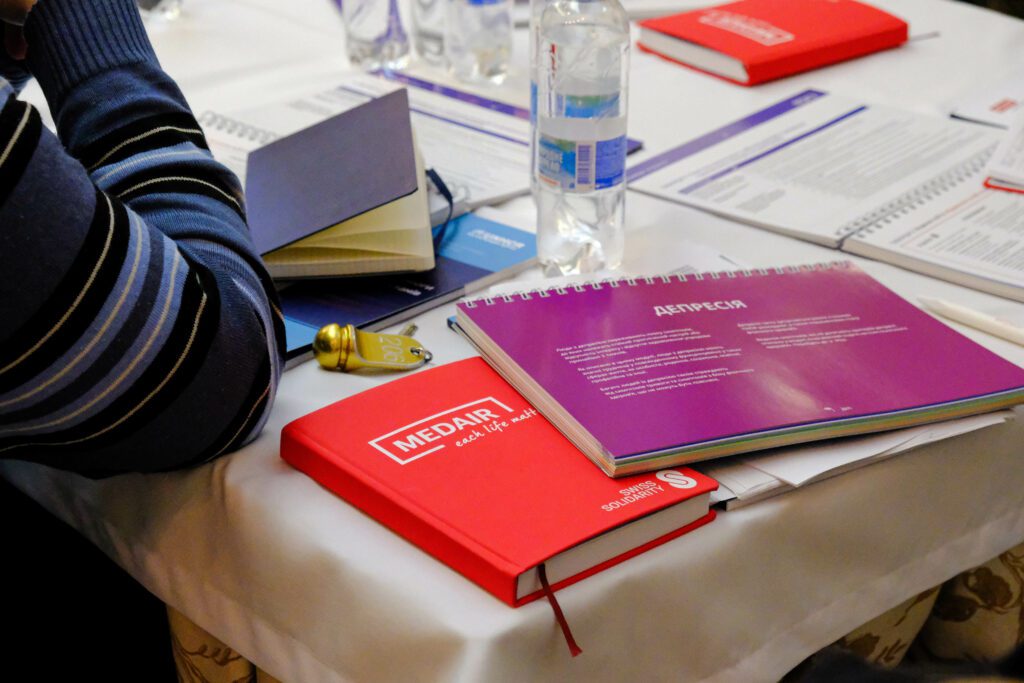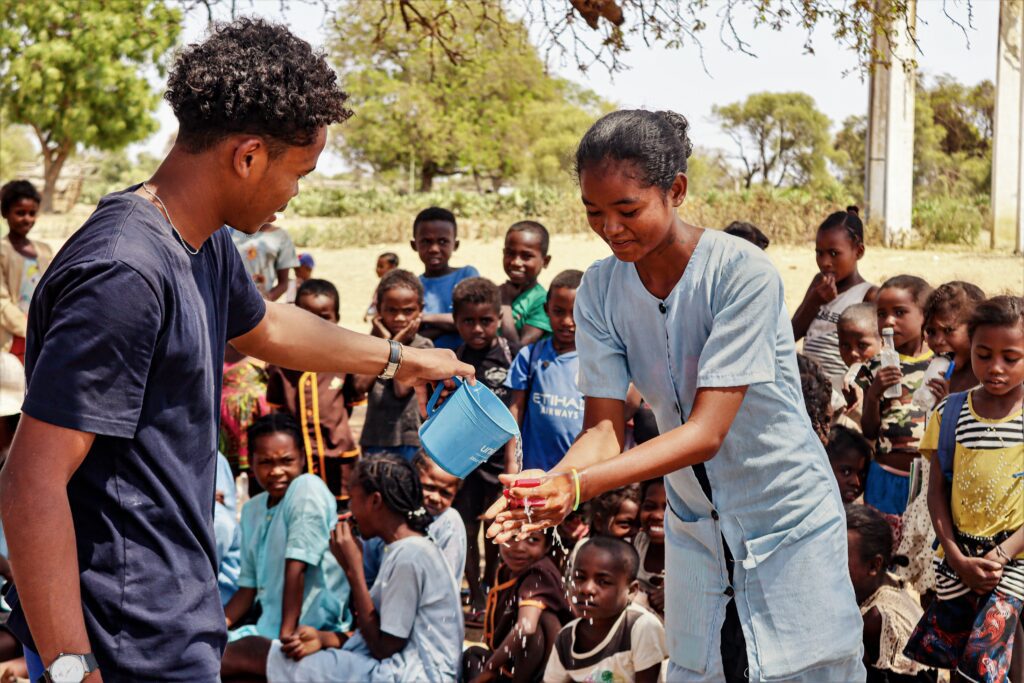As Medair’s time in Bangladesh comes to an end, with our projects handed over to trusted partners, we look back – in pictures – at key moments from the past four and a half years.
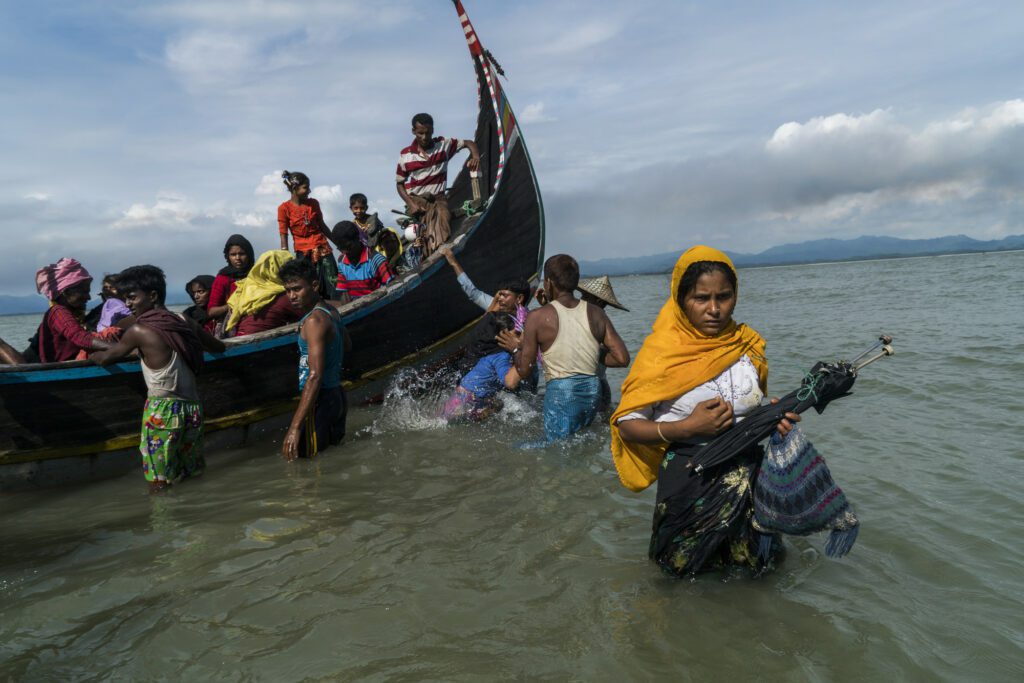
© Medair/Jonathan Kyle
On 25 August 2017, and in the days and weeks that followed, horrific attacks targeted the Rohingya community in Rakhine State, Myanmar.
A predominantly Muslim minority, the Rohingya have suffered relentless targeting and discrimination for decades.
The August 2017 attacks forced hundreds of thousands to flee their homes, and find safety in neighbouring Bangladesh.
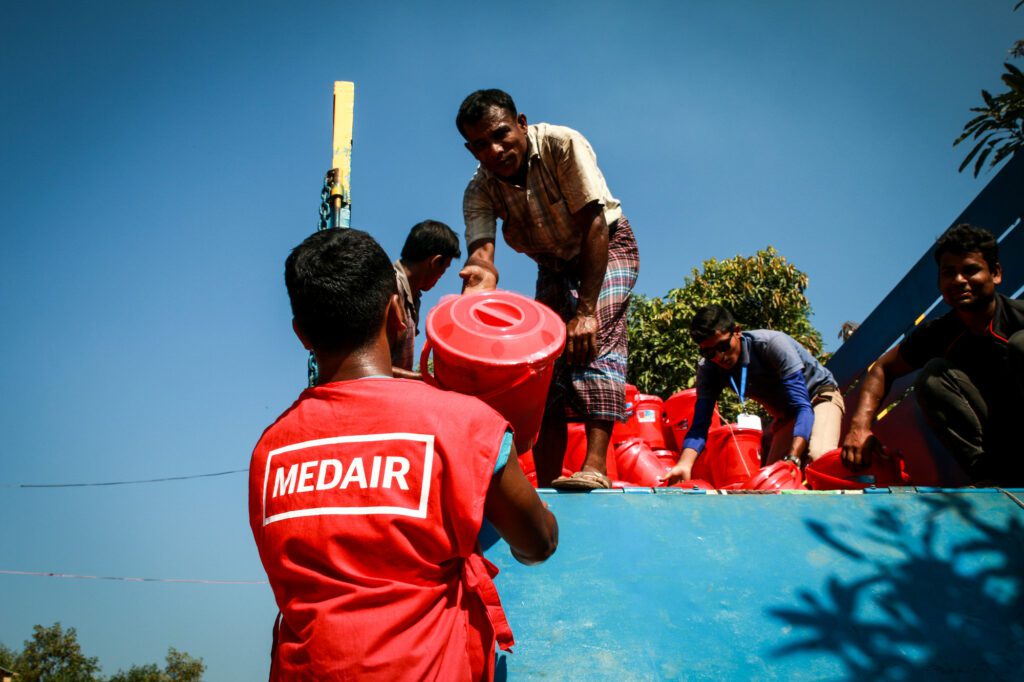
© Medair/Jonathan Kyle
Within days, Medair had deployed its Global Emergency Relief Team to southern Bangladesh, where the vast majority of people were fleeing, often arriving with only the clothes on their backs.
Medair, along with the government of Bangladesh, UN agencies, and many other aid organisations, started welcoming refugees and distributing essentials such as shelter kits and hygiene items to provide some relief to refugees.
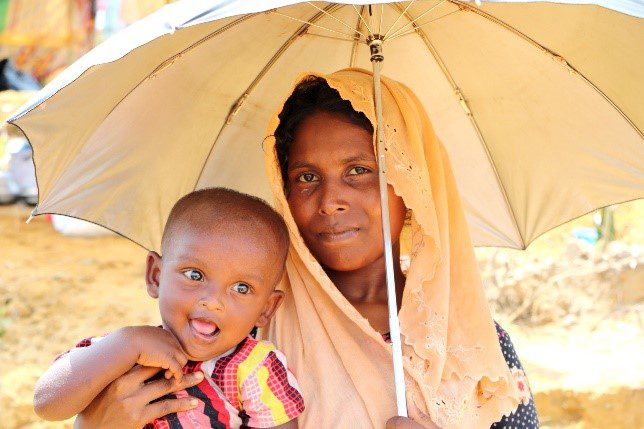
© Medair/Jonathan Kyle
Many families arriving in Bangladesh had suffered severe trauma. Stories like Lala’s were all too common.
At the time, Lala shared with our team: “My husband was killed. They set fire to our house, so we fled to my brother’s house. We stayed with him for 10 days, until they set fire to his house as well.
“That’s when we realised we could not stay in Myanmar. Bangladesh was the closest country. I don’t know what will happen to us. It is hard being without my husband.”
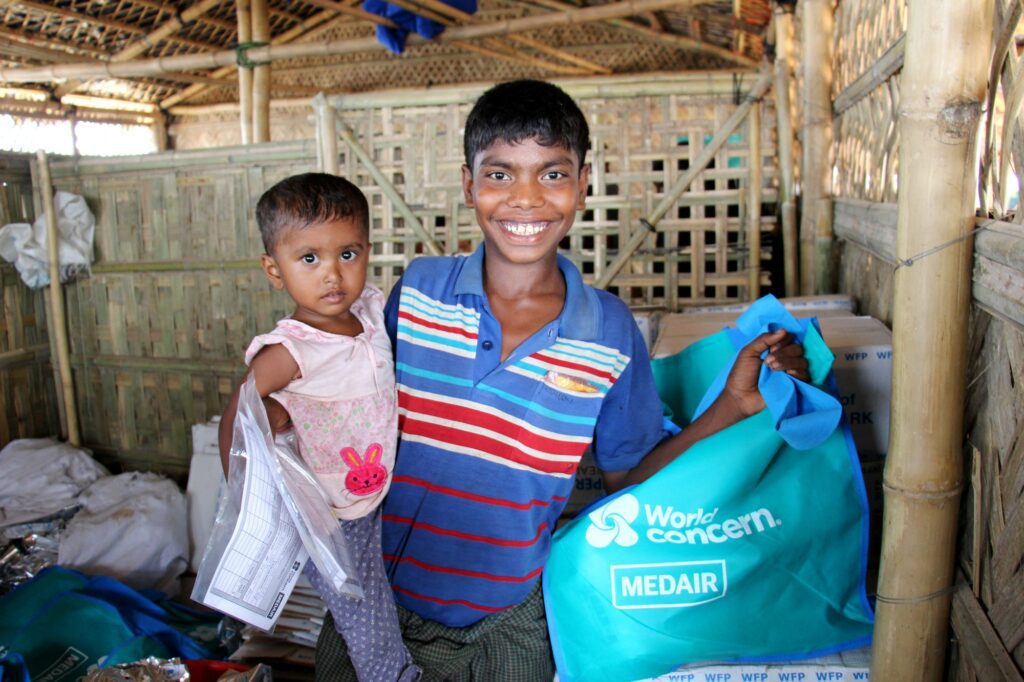
© Medair/Jonathan Kyle
As the weeks and months went on, more families were arriving and settling, as best as they could, in the makeshift camp.
Amidst such increasing needs, Medair decided to maintain its presence, in partnership with World Concern, an aid organisation with decades of experience in Bangladesh.
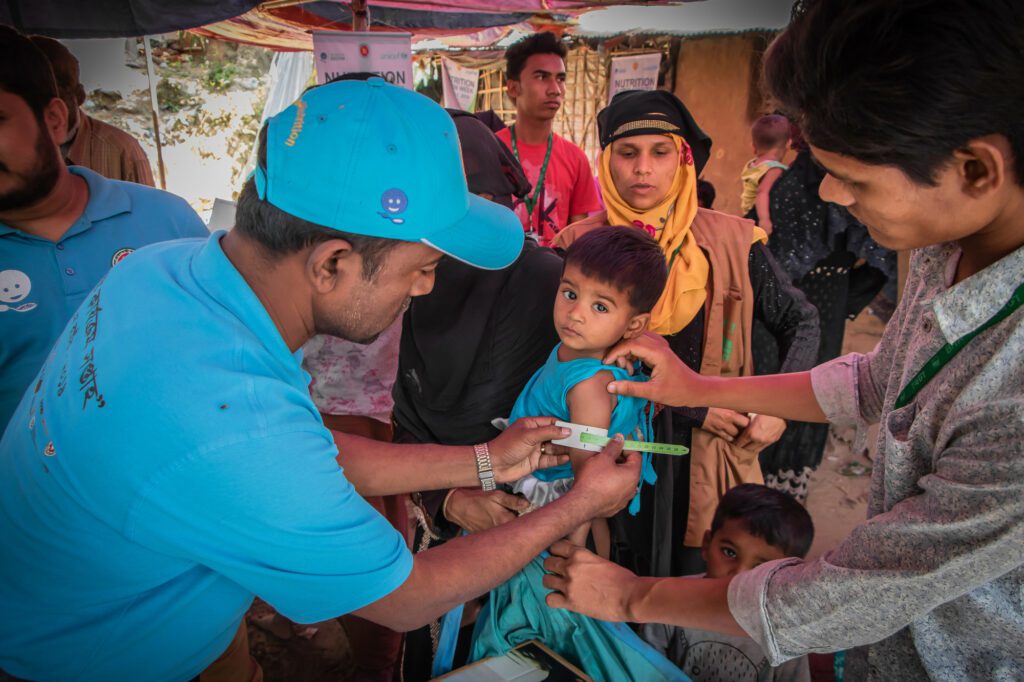
© Medair/Jonathan Kyle
Medair’s teams focused on different areas of assistance.
Chief among them was meeting sky-high nutrition needs among pregnant and breastfeeding women, as well as children under five. Thanks to this programme, thousands of families received free nutritional care over the following months and years.
Elizabeth Karman, Health and Nutrition Manager (2019), wrote at the time about visiting a mother who had just given birth to triplets: “After receiving visits from a nutrition nurse, the family is now enrolled in our nutrition programme and the mother is receiving breastfeeding counselling. The family is eligible to receive nutrition support until the children are five years old, providing them with good nutrition that will give a stronger foundation for health for a lifetime.
“Every baby born in Kutupalong deserves the best chance at living a healthy and full life, and nutrition teams are working tirelessly to make this goal a reality.”
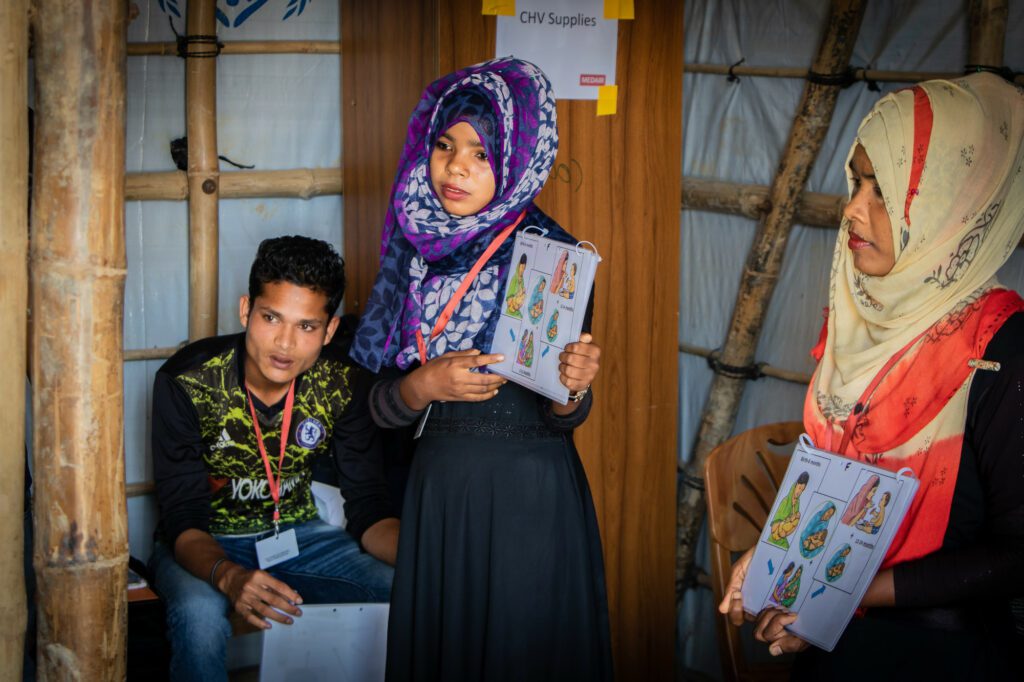
© Medair/Jonathan Kyle
Medair also offered free primary health care in two sub-camps, where families received regular treatment and benefited from home-to-home visits by Rohingya Health Volunteers.
The volunteers, who live in the parts of the camp they serve, were key to the success of this project.
Ali, who started volunteering with Medair in January 2019, shared: “Sometimes, people don’t want to listen to our counselling and our trainings. We tell them they need to take measures to stay healthy, but they don’t always listen. It can be hard also to motivate people to come to the clinic to get treatment.
“So, I try to approach them in a nice way, telling them that the clinic is open to them and that they’re always welcome to come here. Sometimes, when eventually they become sick and they see me at the clinic, they tell me ‘We should have listened to your advice!’”
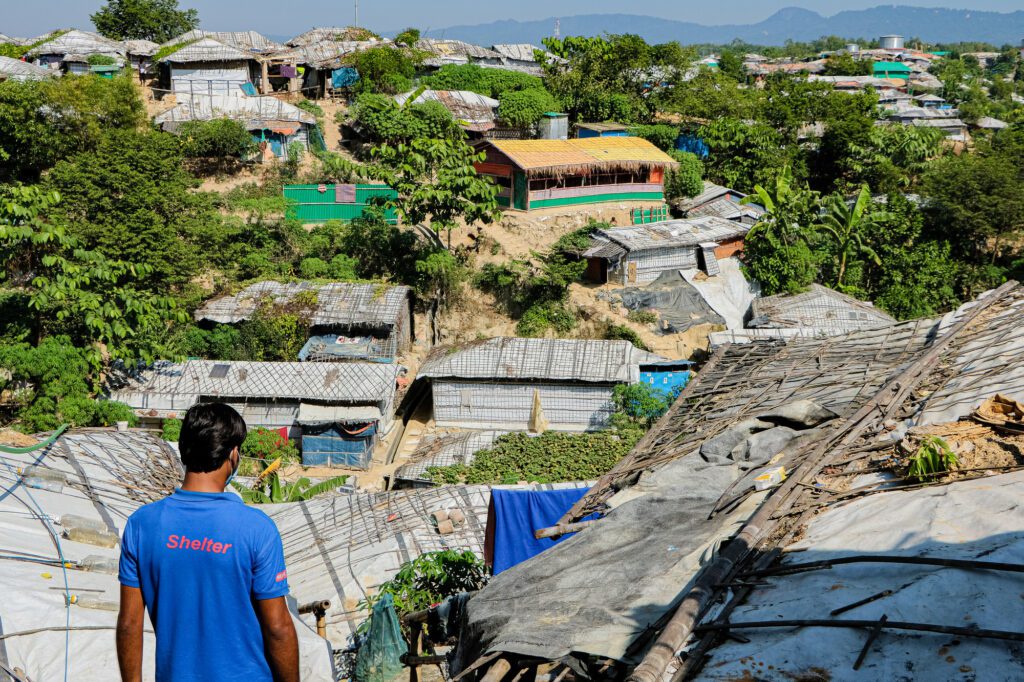
© Medair/Jonathan Kyle
Our teams also focused their efforts on shelter assistance, providing shelter kits containing items such as tarpaulins, bamboo, rope, and pipes, to help strengthen shelters ahead of the harsh monsoon season.
Medair’s shelter team was also responsible for sudden emergency responses when there was severe flooding or devastating fires in a sub-camp covering around 7,000 households.
The teams provided items to rebuild shelters as well as personalised assistance for particularly vulnerable individuals, such as the elderly, single mothers, or people living with a disability. Sazzadul Munna, Shelter Project Officer (2019-2021) explains: “We provided additional services to them such as delivering items directly to their doorstep and sending carpenters and shelter volunteers to put everything together.”
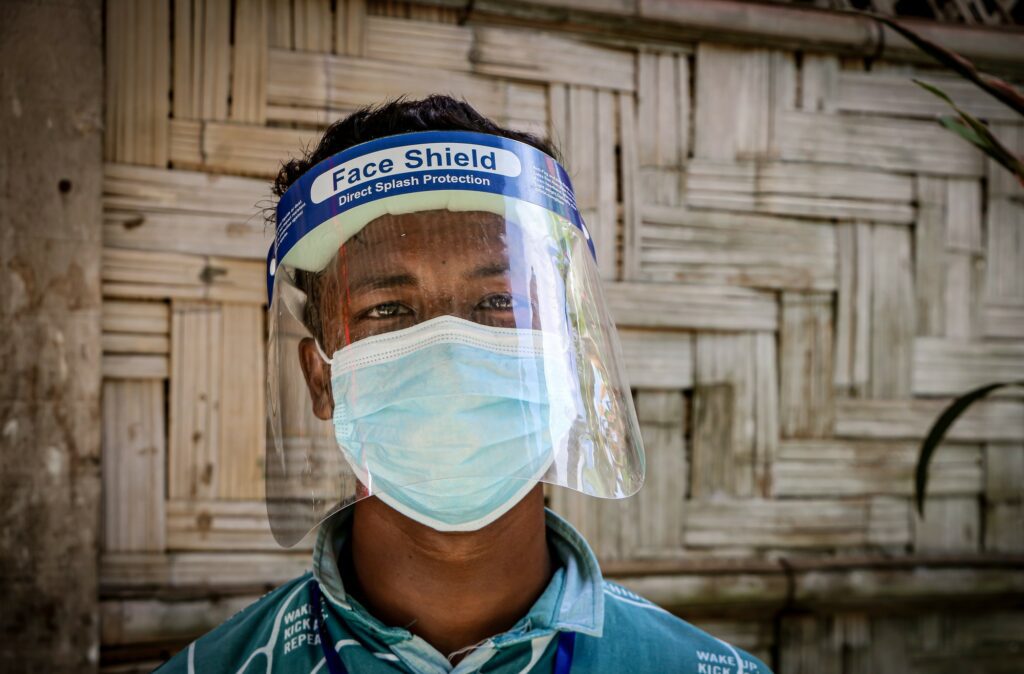
© Medair/Jonathan Kyle
Like the rest of the world, COVID-19 did not spare Bangladesh or the Rohingya camps.
In the world’s largest refugee camp, in such overcrowded conditions, the challenge was immense.
Carl Adams, Medair’s Bangladesh Director (2019-2020) recalls: “The reduction of humanitarian services hit hard. So many of the basic services that people relied on were no longer available – services like safe places for children to play and learn, protection and support for survivors of family violence, shelter and infrastructure assistance that makes the camp a more safe and secure place to stay, or nutrition support for mothers and kids under five. Families tried to cope the best they could, staying in their one-room bamboo and tarpaulin shelters.”
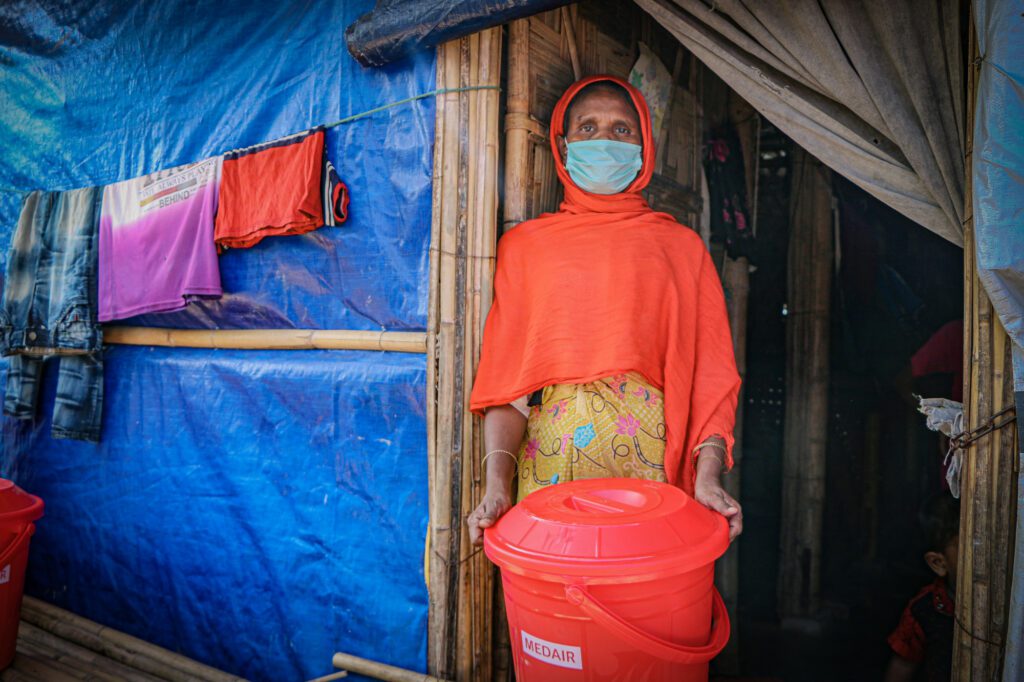
© Medair/Jonathan Kyle
Our teams had to adapt to a new reality, and find different ways to provide assistance, and keep the virus at bay.
One initiative saw our health teams distribute thousands of home isolations kits—with items such as such as soap, disinfectant, detergent powder, or face masks—to at-risk refugees, to help them stay safe and protected from the virus.
Amira, who received a kit, told us: “I am receiving treatment at the Medair health facility as I have health issues. That’s why I am considered at risk of COVID-19. I will be able to use the items in this kit for me and my family.”
Medair also participated in a camp-wide effort to get refugees vaccinated against COVID-19.
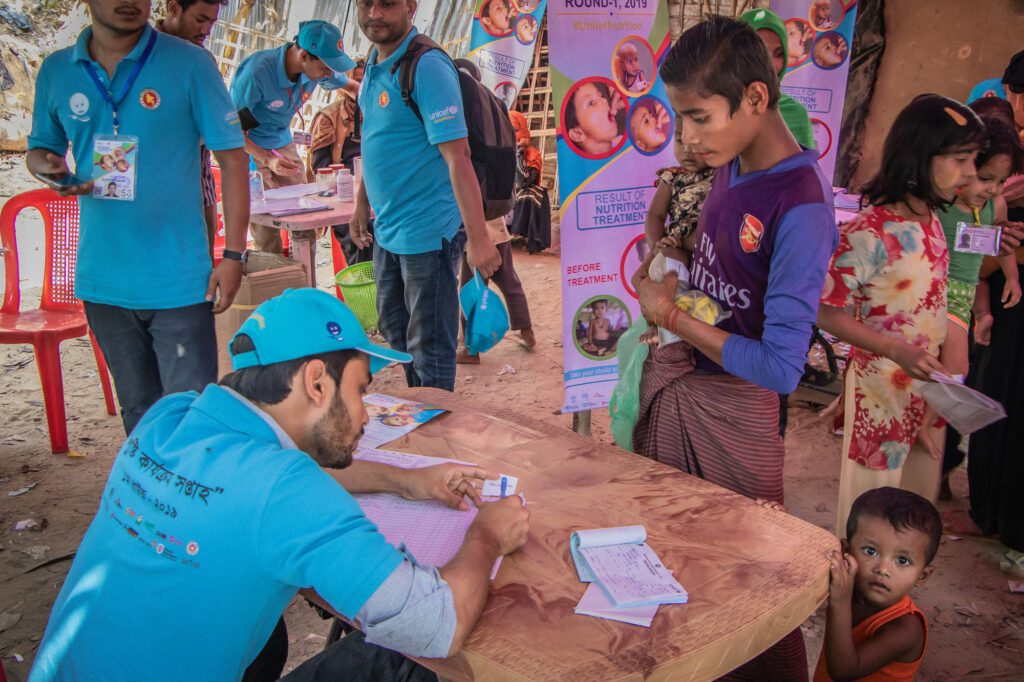
© Medair/Jonathan Kyle
In 2021, the decision was made to gradually start handing over projects to well-qualified partner NGOs.
David Verboom, Medair’s Chief Executive Officer, noted: “Closing a programme is not an easy decision to make, especially when needs remain high. But we are confident our work will be successfully carried on by humanitarian partners who have taken on our projects.
“Thanks to them, there will be no interruption of services to Rohingya refugees, and the vast majority of our staff who wish to will continue in their position. In light of this, we believe the time is right for Medair to go where it is currently needed most, in line with our mandate.
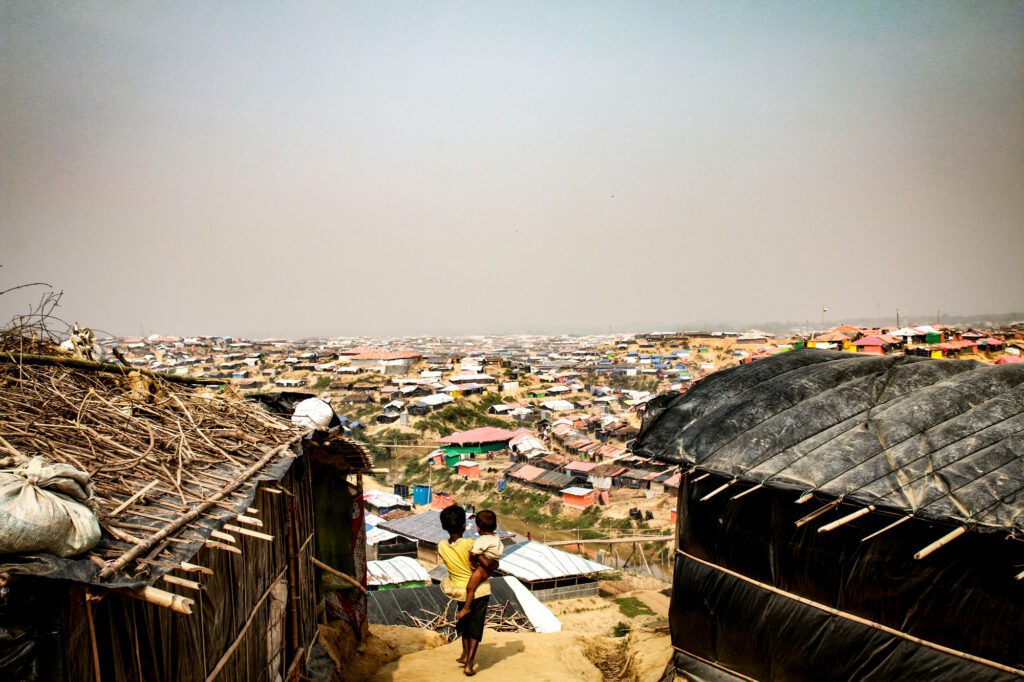
© Medair/Jonathan Kyle
While substantial progress has been made by aid organisations to help the Rohingya through this extremely difficult time, the crisis is far from over. The Rohingya still face a very challenging and uncertain future.
Rachel Hirons, Medair’s Bangladesh Director (2020-2022) notes: “While there are so many emergencies happening around the world right now, we would urge the world not to forget the Rohingya, or their host communities, and to keep supporting the humanitarian response in Bangladesh.
“The Rohingya have told us repeatedly they long to return to their homes in peace and safety, with their rights fully recognized. For that to happen, they will need the continued support and attention of the international community.”

© Medair/Jonathan Kyle
As Medair’s time in Bangladesh comes to an end, we want to thank all of you who have been by our side throughout these four and a half years through funding, prayer, and continued support for the Rohingya.
Our work would not have been possible without you!
Add impact to your inbox. Get the best of Medair’s stories from around the world delivered directly to you. Subscribe today!
Medair is an international humanitarian NGO that provides emergency relief and recovery services to families made vulnerable by natural disasters, conflicts, and other crises.
This content was produced with resources gathered by Medair field and headquarters staff. The views expressed herein are those solely of Medair and should not be taken, in any way, to reflect the official opinion of any other organisation. Some names were changed for security purposes.
For more information on Medair’s work, visit our website or follow us on Twitter @MedairInt.


